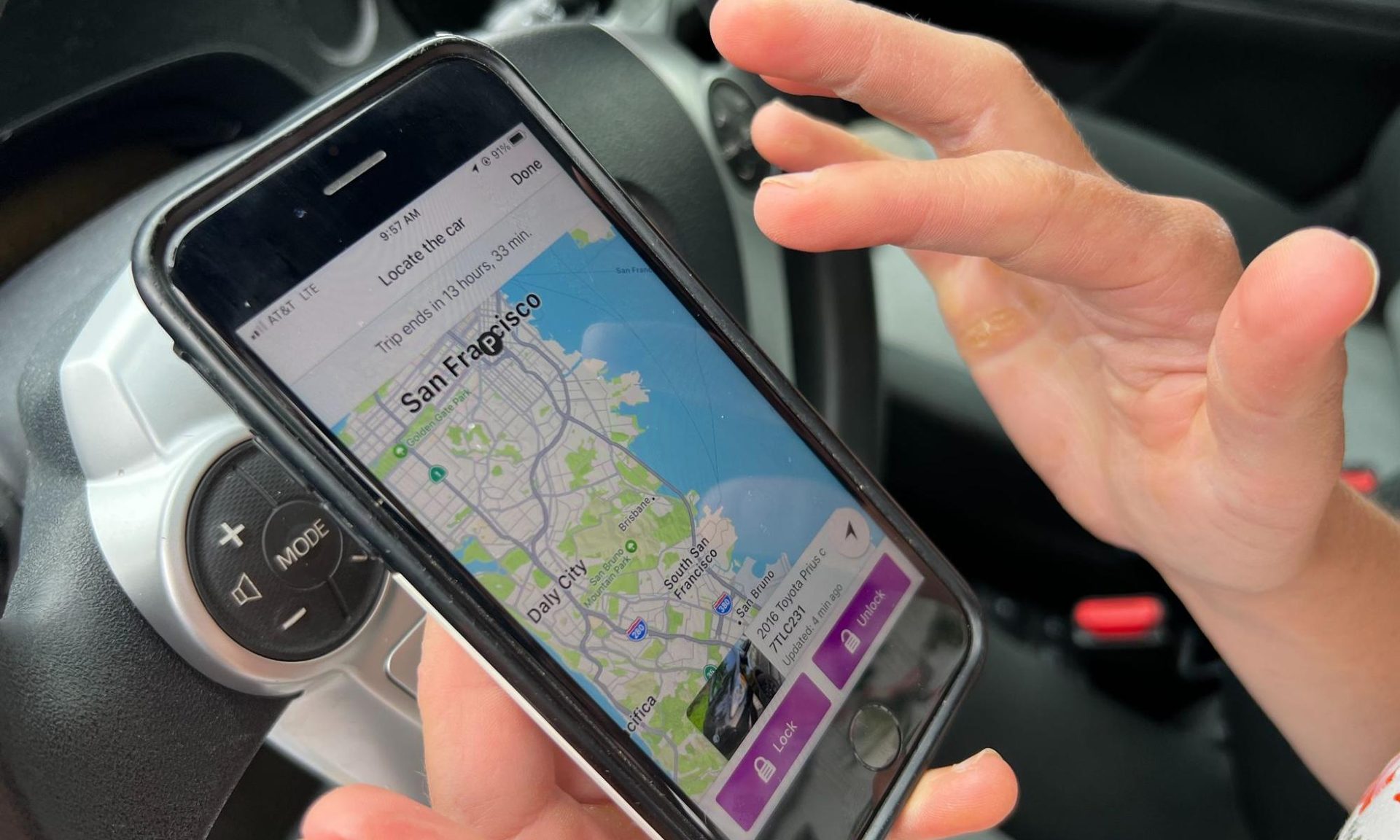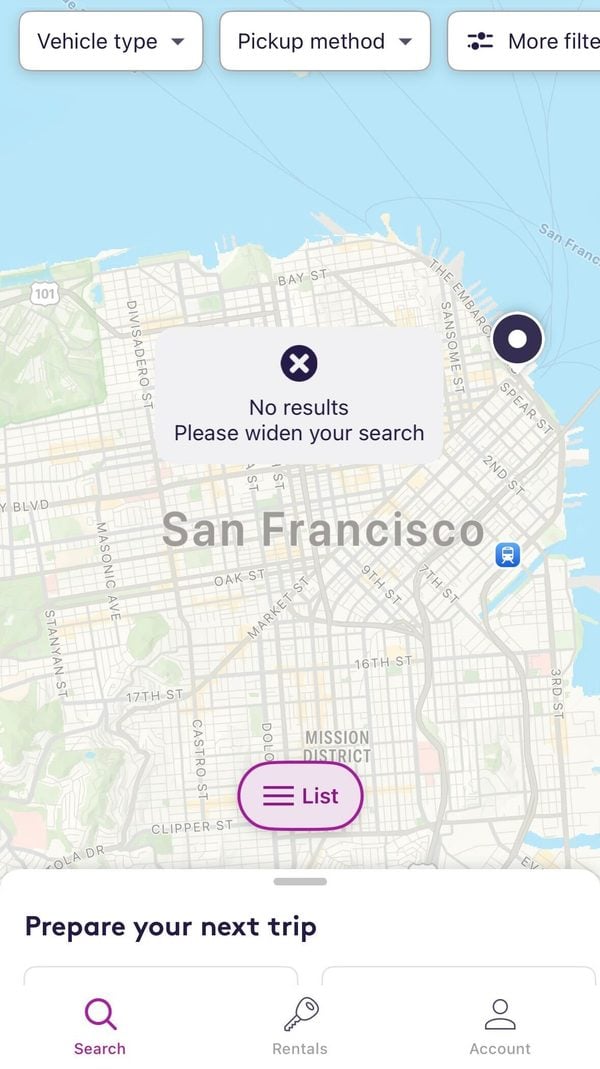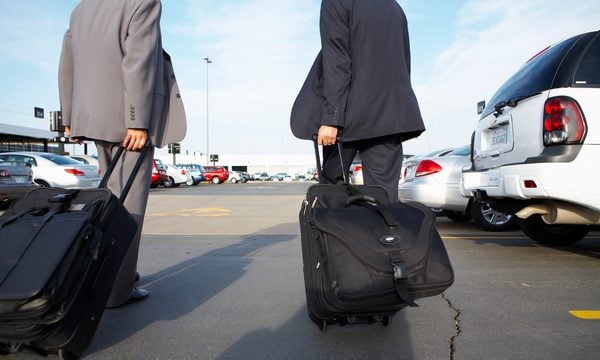Getaround Slams Brakes on U.S. Car Sharing, Leaving Customers Scrambling
Getaround abruptly shutdown on Wednesday, Feb. 12, canceling existing and future rentals.

Many or all of the products on this page are from partners who compensate us when you click to or take an action on their website, but this does not influence our evaluations or ratings. Our opinions are our own.
Customers with car rentals booked through Getaround are in for some frustrating news: The peer-to-peer car-sharing company abruptly announced on Wednesday, Feb. 12, 2025, that it is shutting down its U.S. operations, effective immediately. That means all future rentals have been canceled, leaving those with upcoming travel plans scrambling to find alternative arrangements.
Things are even more complicated for current renters, who have only until the end of the day to return their vehicles — or risk being personally held liable for any damages.
Why is Getaround shutting down?
In a statement, Getaround cited an “ongoing lack of liquidity” as the primary reason for its decision to cease U.S. operations. In short, the company ran out of money.
Though its U.S. presence struggled to be financially viable, the company says it will continue growing in European markets. Getaround, which claims to be the leading car-sharing platform in Europe, will continue to operate in France, Norway, Spain, Germany, Belgium and Austria.
What the Getaround news means for renters and hosts

Renters should return cars ASAP. If you don’t return them by the end of day on Feb. 12, you could risk being held personally liable for any damages. In an email sent out to customers, the company warned that after Wednesday, it may no longer be able to provide insurance for vehicles, and any damages incurred will be the responsibility of the renter.
Future rentals are canceled. If you booked a Getaround car for a future date, you’ll have to make other plans. At this point, it’s unclear how the company is handling refunds. The company says that “any outstanding claims or balances will be handled through the wind-down process.”
Hosts can no longer use the platform to rent out cars. Some Getaround hosts have made renting out vehicles on Getaround a key side hustle — and some have even used it as their own small business, purchasing a fleet of vehicles to rent out on the platform. Since renters are no longer able to book, that income stream has been eliminated.
The app is still accessible in the U.S., but rental listings have been removed. Customers who log onto the app today can still view their ride history. But the app doesn’t list any cars available for rent in the U.S.
Some details remain unclear
At this point, there’s still a lot we don’t know about Getaround’s shutdown. It’s unclear how final payments to hosts will be handled, or when renters will get refunded. It’s also unclear how insurance claims for incidents that occurred before the shutdown might be handled. Getaround hasn’t yet responded to a request for comment.
Alternatives to Getaround
While Getaround is no longer an option in the U.S., other peer-to-peer car-sharing services still exist. Whether you need a car to rent (or you want to post your car for rent) here are some alternatives to consider:
- Turo: Of all the peer-to-peer car rental services, Turo operates most similarly to Getaround, allowing customers to rent vehicles directly from local hosts.
- Traditional car rental companies: If peer-to-peer car-sharing is no longer an option, don’t overlook companies like Enterprise, Hertz and Avis. A NerdWallet analysis of rental car prices found that you could save 13.4% on average by booking rental cars last minute.
How to maximize your rewards
You want a travel credit card that prioritizes what’s important to you. Here are some of the best travel credit cards of 2026:
- Flexibility, point transfers and a large bonus: Chase Sapphire Preferred® Card
- No annual fee: Wells Fargo Autograph® Card
- Flat-rate travel rewards: Capital One Venture Rewards Credit Card
- Bonus travel rewards and high-end perks: Chase Sapphire Reserve®
- Luxury perks: American Express Platinum Card®
- Business travelers: Ink Business Preferred® Credit Card
Article sources
NerdWallet writers are subject matter authorities who use primary,
trustworthy sources to inform their work, including peer-reviewed
studies, government websites, academic research and interviews with
industry experts. All content is fact-checked for accuracy, timeliness
and relevance. You can learn more about NerdWallet's high
standards for journalism by reading our
editorial guidelines.
Limited Time Only: Earn $1,000 Toward Travel!
Capital One Venture Rewards Credit Card 
Travel

For a limited time, the
Capital One Venture Rewards Credit Card is offering new cardholders an especially rich bonus: Enjoy $250 to use on Capital One Travel in your first cardholder year, plus earn 75,000 bonus miles once you spend $4,000 on purchases within the first 3 months from account opening - that’s equal to $1,000 in travel!
More like this
Related articles







